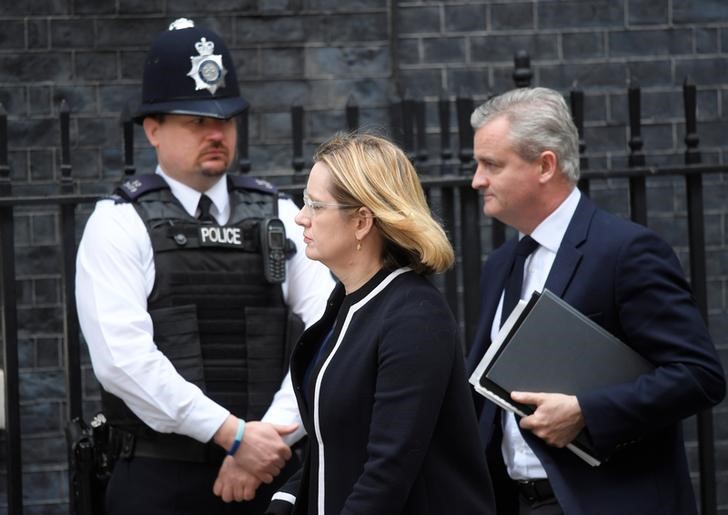By Alistair Smout
LONDON (Reuters) - Britain expressed irritation on Wednesday at leaks in the United States of details about a suicide bomber who killed 22 people at a packed pop concert, saying disclosures of that kind could hinder such investigations.
The suicide bombing at a packed concert in Manchester was the deadliest attack in Britain since July 2005, when four British Muslim suicide bombers killed 52 people in coordinated attacks on London's transport network.
U.S broadcasters, drawing on U.S. sources, named the suspected killer as Salman Abedi hours before Manchester police revealed his identity. Non-U.S. media followed, again citing U.S. sources.
"The British police have been very clear that they want to control the flow of information in order to protect operational integrity, the element of surprise, so it is irritating if it gets released from other sources," British interior minister Amber Rudd said when asked about the U.S. leaks by the BBC.
"I have been very clear with our friends that should not happen again," Rudd said.
A spokeswoman for Rudd declined to clarify her comments.
As Rudd was speaking, the French interior minister was quoted as telling reporters that the attacker had proven links to Islamic State, and probably had traveled to Syria.
British officials have declined to confirm the details released by French Interior Minister Gerard Collomb, who said the information had come from British investigators.
Britain views the United States as its most important defence and security ally, and the two countries also share intelligence as part of the so called "Five Eyes" network which also includes Australia, Canada and New Zealand.
After President Donald Trump defended his decision to discuss intelligence with the Russians during a White House meeting, Prime Minister Theresa May said last week that Britain would continue to share intelligence with the United States.
But disclosures in the U.S. media about the Manchester attack have clearly troubled senior British ministers and investigators.
Asked whether the U.S. leaks had compromised the investigation, Rudd said: "I wouldn't go that far but I can say that they are perfectly clear about the situation and that it shouldn't happen again."

Christopher Meyer, UK ambassador to Washington from 1997 to 2003, said on Twitter that Rudd had been "quite right to give the U.S. a kicking."